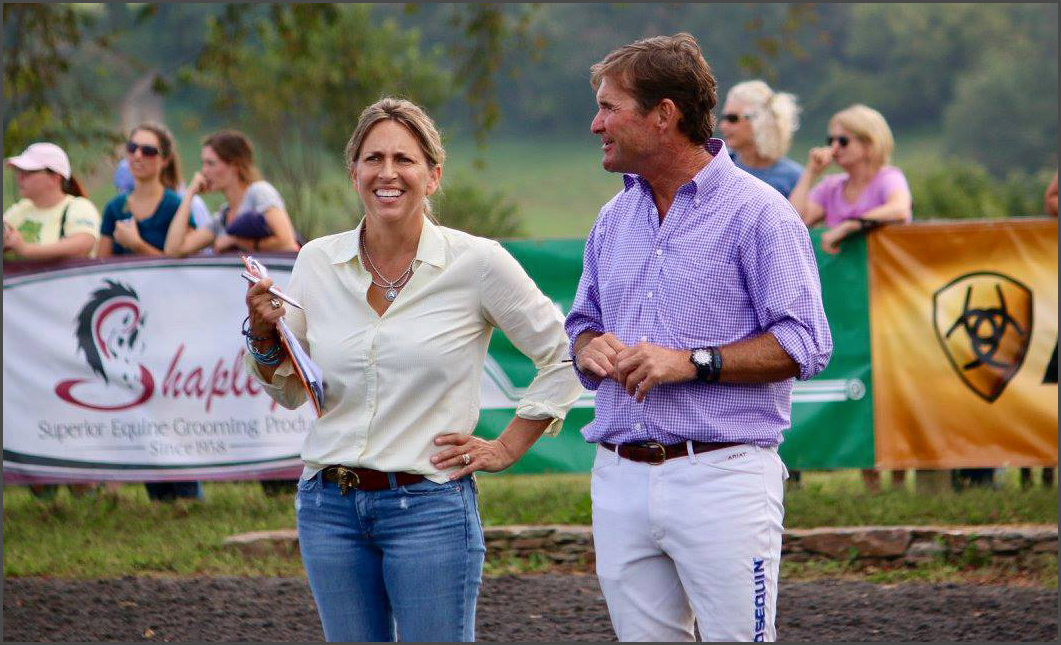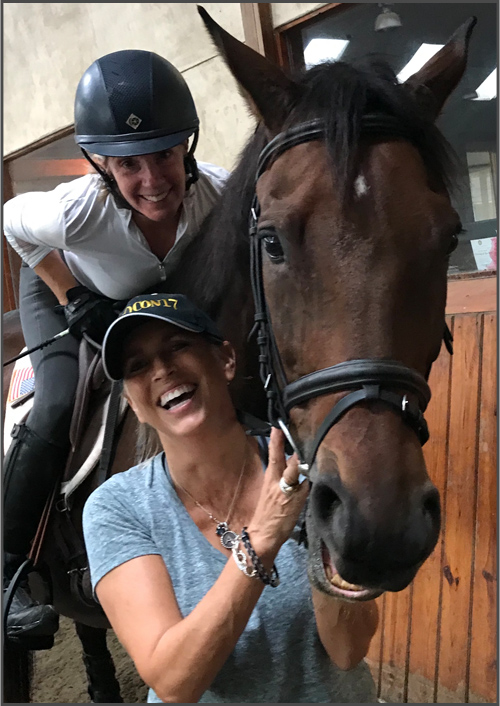“A good man will take care of his horses and dogs, not only while they are young, but also when they are old and past service.” – Plutarch
Aftercare. What does this mean?
We have limited control of what happens after horses leave us, but we must hope they are cared for, which means adequate food, water, medical care, a safe place to live, and kind human attention.
Placing a horse after they retire from racing is taken very seriously. Most horses can pursue a level of competitive activity or at least be a riding horse with nothing much asked. Fitting the right person to the right horse is key. We do our best to ensure they go to an owner who will keep us informed if the horse moves on or, conversely, will advise us if it’s just not going to work out.
Over the last few years, we have formed a relationship based on our friendship with three-time Olympic Gold Medal-winning event rider, Phillip Dutton. He has always said that a good Thoroughbred has everything that it takes to make it to the top of that sport.

Anita alongside Phillip Dutton.
In 2013, we asked if Phillip would take Icabad Crane, then eight years old, on a trial basis. I enjoyed going to True Prospect Farm and documenting his progress. We agreed we would give ‘Icabad’ a month to see if he had any talent. He’s still there. In his first year there, he won the inaugural Retired Racehorse Project’s “America’s Most Wanted Thoroughbred” competition held at Pimlico Race Course in Baltimore, Maryland. Ironically, five years prior ‘Icabad’ ran in the Preakness Stakes, the second leg of the Triple Crown, finishing third to Big Brown.

Anita with Evie Dutton and Icabad Crane
I’ve lost count of how many views and likes ‘Icabad’ has had on his Facebook page and on our YouTube channel. He has a strong and enthusiastic fan base and is a favorite for many. In 2018, he was chosen to be a Breyer model horse which was a huge honor. I really do love the horse. To see him do so well and be enjoyed by the Duttons and his new fan base is special. He is a very cool, kind horse.
Icabad was the first one to stay past the required “month” probation with the Duttons. He is currently joined by Grade 1-winning millionaire Ring Weekend who retired in 2018, Sea Of Clouds, who never broke his maiden, but is competing at an advanced level at the age of eight and showing great promise, and new guy Lion’s Share.
We get great pleasure from our arrangement, and we are forever grateful to Phillip and his wife, Evie, for accommodating us with the many horses we have trailered over there – some good, some not so good. I’m sure they would be as delighted as we would if one of them ever makes it to the international level.
In attempting to make progress and provide forever homes to retired Thoroughbreds, our industry has formed multiple aftercare charities, perhaps to a fault. We are saturated with organizations that require our money and attention. Despite the challenges, we try our best to be involved as much as we can, as well as maintaining efforts with our own band of retirees.
Caring for a horse can be a 30-year or more commitment, which is difficult for some people to accept. I try to equate that to small animals, like cats and dogs. I’m pretty sure if our pets lived for 30 years like a horse, we would have an epidemic of unwanted animals.
I feel that we should have one organization that collects data and dollars from every person that profits from a Thoroughbred, including owners, trainers, riders, grooms, feed companies, hot walkers, breeders, sales companies, transport companies, blacksmiths, therapists, veterinarians, etc. It should be a requirement before being licensed or employed and should be renewed annually. There is data readily available that shows how many people are employed in the Thoroughbred industry. If everyone rallied together, we wouldn’t need the charities.
I think in the past, we might not have put as much thought into aftercare and what that really means, but in general, everyone is much more cognizant these days about the long-term commitment. Recently, a potential owner asked if buying a horse meant that they would have to take care of it for the remainder of its life. We responded, “technically, yes.” It’s tough to decide who should be responsible. Is it the breeder? The owner? If the horse is sold or claimed, does this responsibility pass down or is the responsibility shared? There are no easy answers, but it’s a topic that should be discussed.

